When selecting a new floor there are many important factors necessary to consider, but ultimately it boils down to two things: type and location. Ask yourself, are you choosing the right flooring type for your project? Is the substrate intended to meet your needs? Because, yes, though you may look at all the options for flooring and think the main differences are in the look, there is flooring made specifically for each unique commercial purpose. These purposes then denote even more specific floor decisions.
For example, although vinyl and laminate tiles are both used for residential and commercial properties, there is a difference in the durability and construction of the flooring and its intended use per manufacturer specifications. Understanding the manufacturer’s specifications for the selected flooring is paramount in its longevity and effectiveness over time. Anticipating whether the flooring will be walked on when wet or if it will be maintained dry are factors that affect not just the maintenance necessary for the surface, but also the safety and slip resistance of the flooring per the manufacturer’s specifications. When the wrong flooring material is selected, greater danger is posed to all guests and patrons. Luckily, we have testing services to evaluate the slip resistance of all flooring types.
Don’t Sell Yourself Short on Slip Resistance
Manufacturers will often specify the purposes for their flooring. It is always important to double check these specifications so that you are choosing the right material for you. Consideration toward the amount of daily foot traffic as well as possible foreign substances and cleaning methods is a must. Keep in mind that Dynamic Coefficient of Friction (DCOF) slip resistance testing requires a minimum of 0.42 for acceptable use, but generally the higher the number the better as there are extensive variables creating slip hazards. Throughout our testing services, we have often found many DCOF values are incorrectly advertised and encourage clients to have their own testing completed due to this unexpected failure. Finding out a product does not meet the manufacturer’s reported values after installation creates a very expensive and difficult problem.
Regardless of slip testing results, understanding the anticipated aggressive contaminates to the location is an important factor in considering intended use. Expecting wet conditions is one thing, like in a public restroom, but will other foreign substances—like oil, food, or other lubricating substances—be present? If so, certain flooring types are just not capable to provide proper slip resistance, like smooth marble or unsuitable VCT. Restaurants, machinery areas, or even children party establishments all need flooring intended to withstand the type of daily wear and tear and foreign substances expected and unexpected.
If you have already identified the floor type you intend to use, we encourage you to utilize our traction profile services. By sending us a sample and specifications of the chosen flooring, we will test for DCOF and provide a narrative advising whether the flooring is appropriate for your intended use and making recommendations to guide you in selecting a floor that meets your specific needs.
Choose the Right Floor for You
Whether you are an architect, engineer, contractor, or building owner, understanding flooring specifications is incredibly important for walkway safety. Slip and falls occur, but we can lessen their frequency by doing our due diligence to install the correct floor and ensure it has appropriate slip resistance and performance to meet your unique needs.
If you are worried your flooring may not be correct or fails for DCOF slip testing, please contact us right away! We are available for a complimentary specification review and initial consultation and can assist in laboratory testing to on-site investigations and routine walkway audits on all floor types. More knowledge to you is more safety for everyone. For more information, please fill out the contact form below or call us at 856-437-7900.
As always, Test Moore, Slip Less.
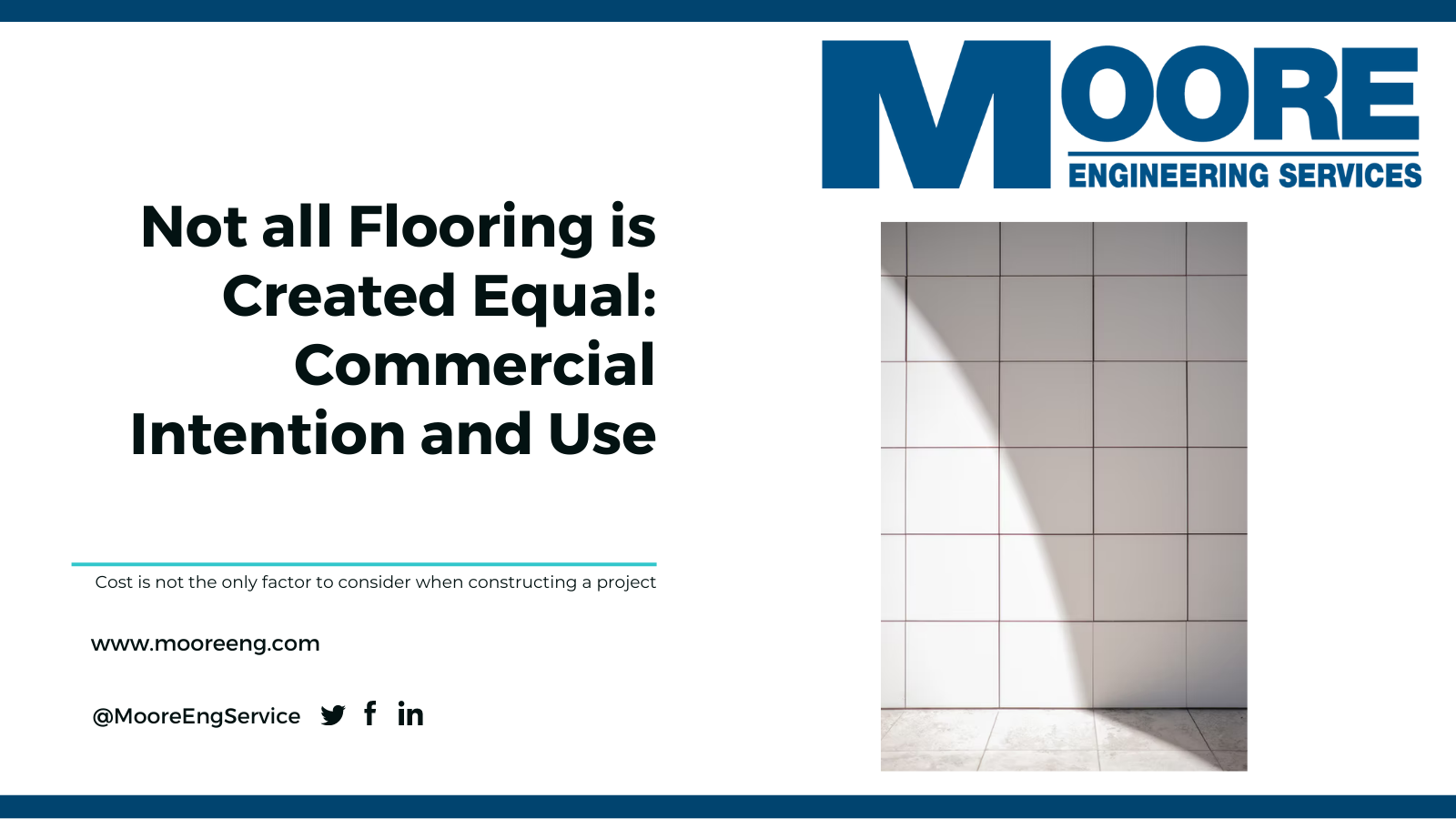
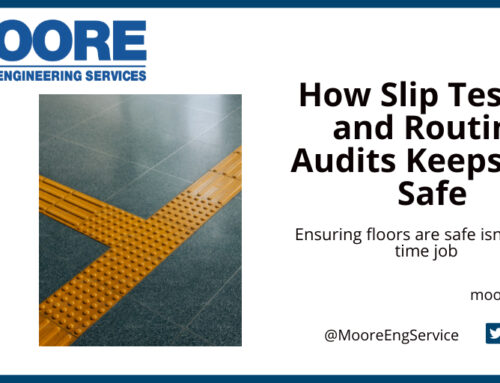
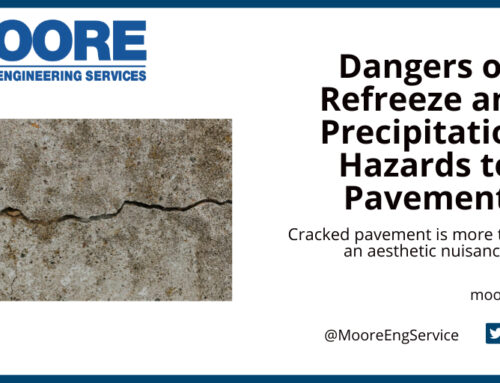
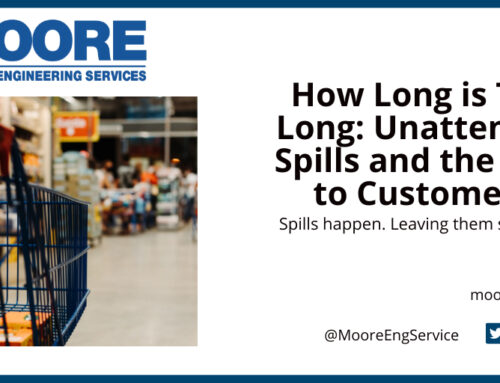
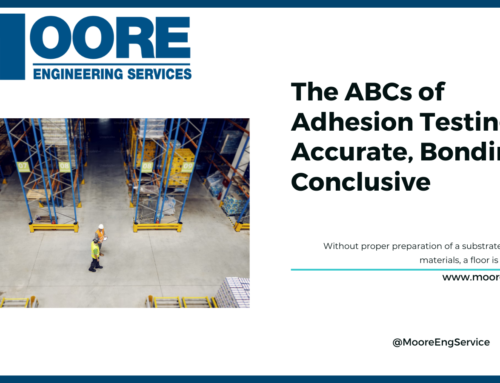

Leave A Comment